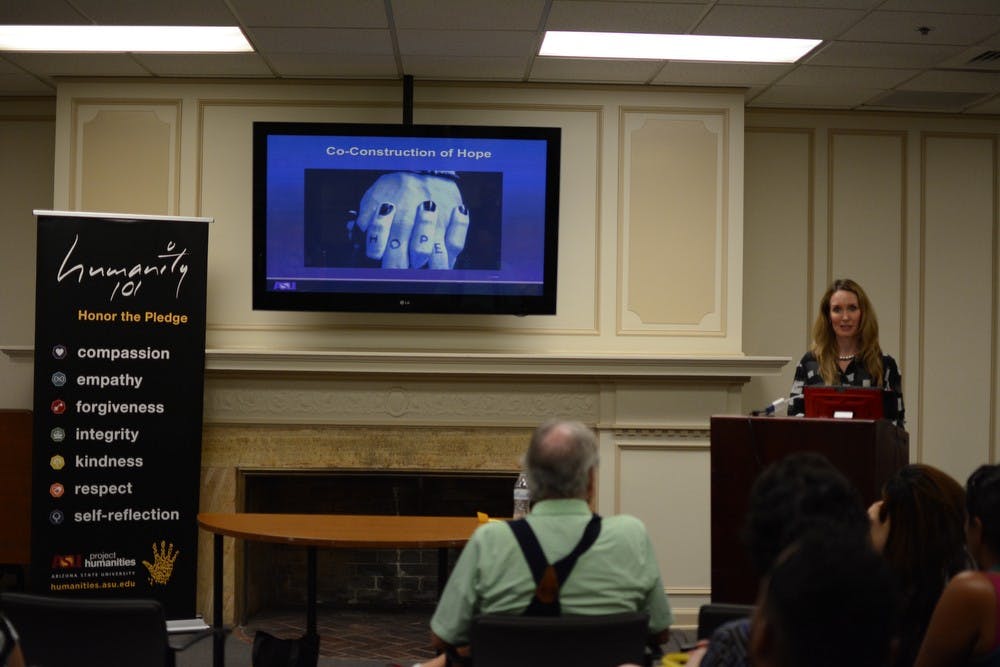Compassion can combat terror, human communication professor Sarah Tracy explained to students in a lecture Wednesday.
In her presentation at West Hall in Tempe, co-sponsored by The Transformation Project and Project Humanities, Tracy shared what she and colleague and former student Timothy Huffman, who is now an assistant professor at Saint Louis University, found when they conducted research on what would have been a school shooting in the suburbs of Atlanta.
Tracy, who teaches a number of courses at ASU, said that she and Huffman studied how compassion enabled bookkeeper Antoinette Tuff to persuade Michael Hill, who carried an AK-47 into Ronald E. McNair Discovery Learning Academy on August 20, 2013, to stop his shooting attempt and comply with police.
In her lecture, Tracy played the 911 call that Tuff made, chronicling a large portion of the 2013 incident. The recording, which elicited emotional responses from several audience members, was a pivotal resource that Tracy and Huffman used to decipher how Tuff was able to talk Hill out of harming anyone.
Tracy pointed out and commended Tuff’s efforts to recognize Hill’s distressed behavior, and relate to his pain after she acknowledged it. Tuff’s compassion also became evident during the call when she suggested to Hill that he could still have a positive future if he gave himself up to authorities. Once he began to listen to her solution, Tuff said she was proud of him, and offered him a glass of water, continuing her efforts to calm him down and diffuse the hostile situation.
The lecture emphasized the role that verbal and nonverbal presence plays in establishing compassion in times of crisis.
“We are living in a society where increasingly we are not present,” Tracy said. “Compassion begins with the choice to communicate.”
Tracy said that moving forward she hopes that her research will be built off of to further analyze and understand situations similar to Tuff and Hill’s interaction.
Neal Lester, the director of Project Humanities and an English professor at ASU, helped moderate a discussion following the lecture where several audience members voiced their opinions on and asked questions about the 2013 incident and the results of the research conducted afterwards.
“The idea is to remind us that we haven’t lost our humanity,” Lester said in closing, referring to events like “Compassion in the Face of Terror” that Project Humanities sponsors.
Reach the reporter at Erin.Beas@asu.edu
Like The State Press on Facebook and follow @statepress on Twitter.




